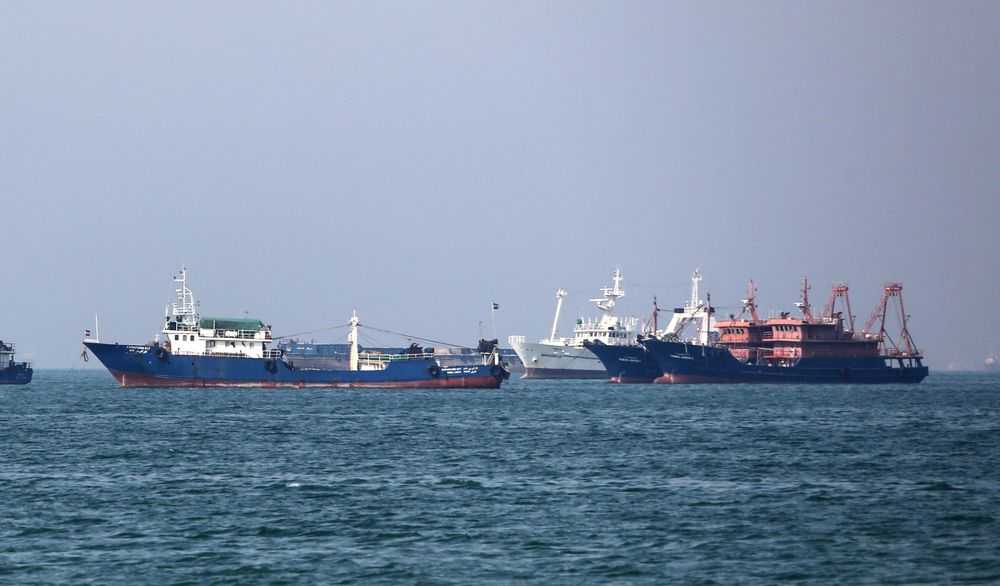Persian Gulf tensions increase stakes for oil, shipping markets
Persian Gulf tensions increase stakes for oil, shipping markets
shipping markets Ongoing conflicts in the Persian Gulf left ship operators in the region wary of crossing the chokepoint, the Hormuz Strait and increasing geopolitical hazards on the oil industry.
The Ministry of Defense of the United Kingdom said Thursday morning that three Iranian ships "tried to impede the passage" of the British Heritage as they left the Gulf. According to the Fars news agency, Iran's Revolutionary Guards denied responsibility.
A senior Iranian official said Iran should seize a British tanker in retaliation for the last week's arrest of Grace 1 in Gibraltar, allegedly carrying Irish crude to Syria. After several attacks on oil tankers in the region, the key oil and shipping artery, the Strait of Hormuz and regional hub Fujairah were under the spotlight.
TRADE FLOWS
** Over the last year, according to the EIA, an average of 20.7 million b / d of oil passed through the Hormuz Strait above 20.3 million b / d.
** The average flow of crude and condensate through the strait was 17.3 million b / d in 2018, while the average flow of refined products was 3.3 million b / d, according to the EIA. On average, LNG flows are 4.1 Tcf / year.
Strait oil shipments have persisted as usual since tanker attacks in May and June, although insurance prices have risen and demand for bunkers has declined in Fujairah.
** Sales of marine oil in the Port of Fujairah have been estimated to have fallen by about 16 percent over Q2 2019 quarter, as tensions in the Middle East continued to weigh market sensibilities following the latest tanker attacks on the region, industry sources said this week to S & P Global Platts.
** Fujairah is one of the top bunkering hubs in the world and is located outside the Hormuz Strait, which handles about 30% of the world's crude marine. Bunker sales volumes at Fujairah Port were estimated at around 1.6 million mt in the second quarter, compared to about 1.9 million mt in the first quarter, according to sources.
PRICES
ICE Brent crude futures rose on Thursday morning after the British Heritage News was announced. The agreement of September traded up to $ 67.65 / b, 64 cents / b higher than the closing of Wednesday.
BP did not disclose to market respondents whether shipments to the Persian Gulf would be stopped due to continuing safety issues, said shipping sources.
"All the owners will basically alert their vessels and provide them with some best practice guidelines while transiting the Hormuz Strait or passages near Iran," said a broker.
** Last week, Shell ordered the British Heritage to ship 140,000 meters of crude cargo in Basra on 5-7 July for shipment to Northwest Europe or the Mediterranean, but ship brokers advised S & P Global Platts that the reservation was canceled on Monday. The tanker left without a cargo from the Persian Gulf.
INFRASTRUCTURE
Only Iran and Saudi Arabia have alternative shipping routes. Saudi Arabia has access to the Red Sea via Yanbu port, which has a capacity of 6.6 million b / d for its King Fahd crude export terminal.
Yanbu Port serves 4.8 million b / d Petrol (East-West Pipeline) pumping around 1.9 million b / d, leaving an EIA-based spare capacity of 2.9 million b / d.
** The UAE operates a 1.5 million b / d Abu Dhabi Crude Oil Pipeline (Habshan-Fujairah), which pumped around 500,000 b / d, leaving 1 million b / d of spare capacity, the
EIA said.
Author: Mohsen Shahvar

